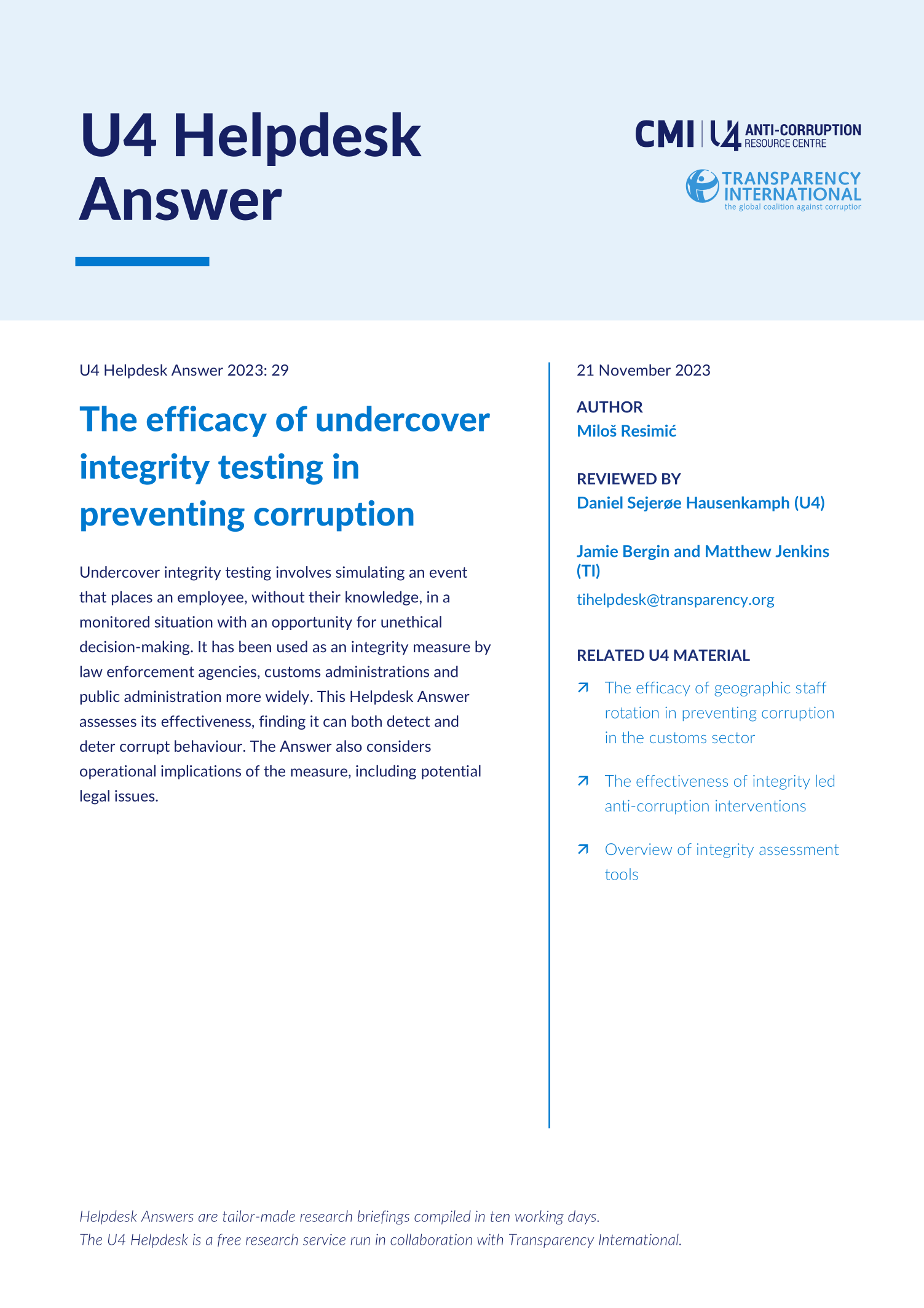Main points
- Undercover integrity testing is a measure used by law enforcement and other public agencies in some jurisdictions as an anti-corruption measure.
- There is evidence of positive effects of this measure, including detecting and deterring corrupt behaviour, encouraging officials to report bribery and identifying the training needs of public officials.
- Evidence suggests that targeted tests are more effective than random tests as they are more cost-effective and can be tailored to the subject of the test.
- There are operational implications to consider before implementing integrity testing, such as potential legal issues.



